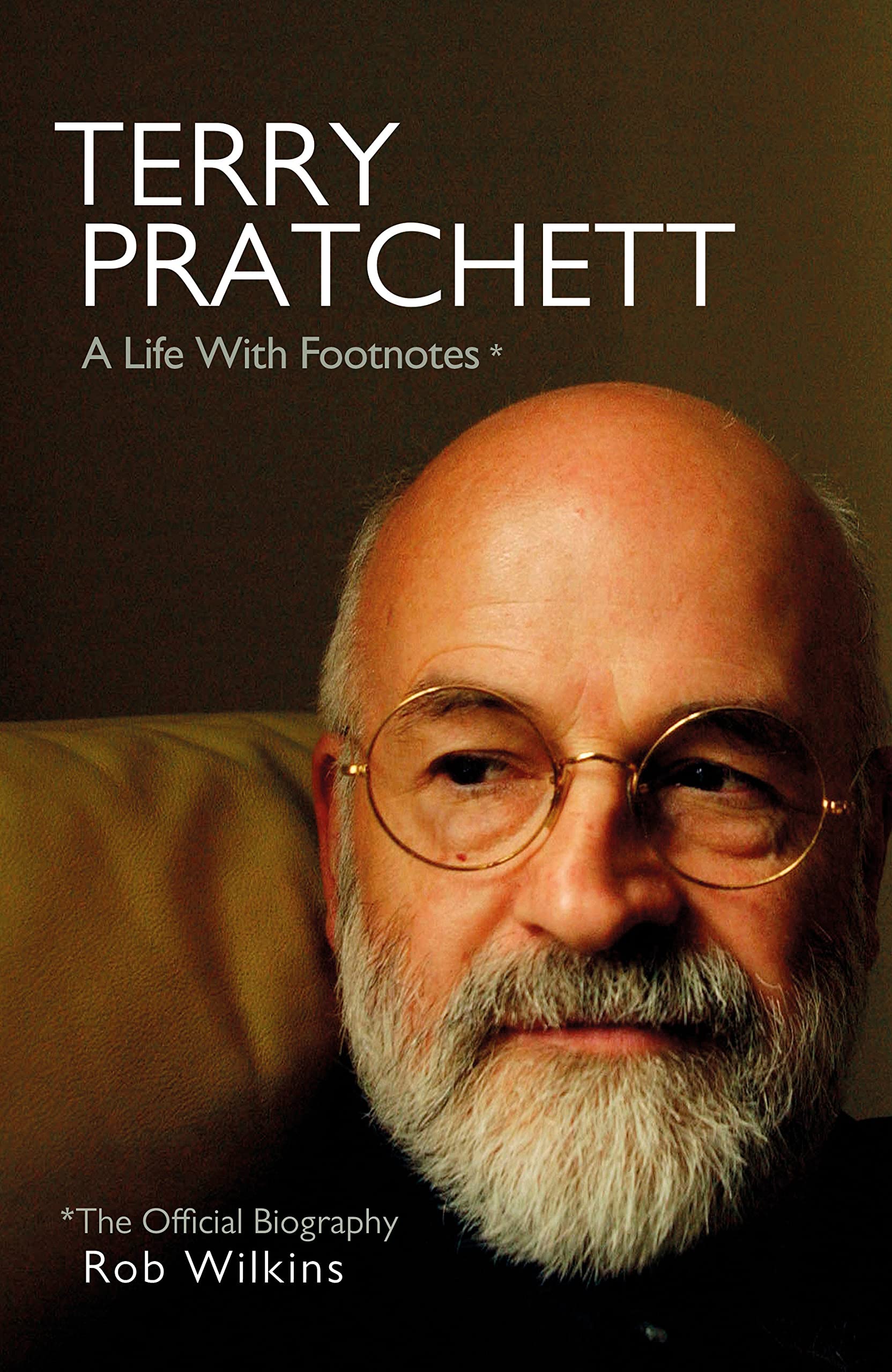I just finished reading Terry Pratchett: A Life With Footnotes: The Official Biography, by Rob Wilkins. I have written about Pratchett before but I want to discuss one aspect of his life that shows up a lot in this book.
Sir Terry Pratchett (or STP, as his fans called him) was a bestselling British author of comic fantasy novels. That description is selling him pretty cheap, since he has also been called the greatest satirist since Chaucer.
And "cheap" is sort of the point, because I want to talk about his relationship with money. Pratchett was raised by working class parents (his father was an auto mechanic). He got a job as a reporter for a small local newspaper and later moved to public relations for the nuclear power industry.
During this time he had started publishing novels. After several had appeared he decided, with great trepidation, to try writing full-time. His publisher (who became his agent) said "His conclusion was that he thought he would see a dip in income in the short term, but then he would quite possibly be all right."
Which turned out to be understatement. At one point he and Wilkins (personal assistant turned business manager and then offficial biographer) calculated that his novels were paying him ten pounds per word. I assure you those of us who write mystery short stories do not make that much.
Pratchett seemed a bit obsessed with money, which is understandable because, besides providing for the necessities and luxuries of life, it was a way of keeping score. For many years critics were not lining up to heap his work with praise and awards. After all, this couldn't be serious work. The wrote about vampires, for heaven's sake. And golems. It took all those serious critics a while to catch onto the fact that his vampires struggled with addiction problems and the golems were fighting for their civil rights.
Why do I say he was obsessed with money? Here is one of many examples. At one point he created a book that was different from anything he had done before and he was so offended by the bids publishers made on it that he took the book off the market for many years. What was wrong with the bids? He felt they were too high. He worried that whichever publisher released the book would lose money.
I diagnose a case of imposter's syndrome, a terrible fear that people might realize he was not as good as they thought.
Fortunately that never happened. Pratchett was even knighted for his "services to literature" although he maintained that his greatest service to literature was never trying to write any.
He was not shy about donating money, including a million pounds for Alzheimer's research after he was diagnosed with an early-onset variant. (He lived with it for eight years. and remarkably kept writing until near the end.) Generally he gave money to organizations that were also finding money elsewhere. "Pratchetts help those who help themselves."
He kept a photo on his office wall, one he got from W.H. Smith's, Britain's biggest bookstore chain. Was it a cozy picture of the front of one of their shops? No. Perhaps a candid snap of him signing books? Sorry.
It was a photo of the company's book-pulping machine, where unloved volumes went to die.
It was, he said, a reminder to write better. And he did.


Oh, long have I loved thee, Terry Pratchett! And for excellent reasons, and I would start reciting quotations, but there are just too damn many of them. All I can say is, as long as the turtle doesn't decide to try the back stroke, there's nothing to worry about, other than the usual disasters.
ReplyDeleteI try to explain the turtle to people, and they look at me as if I were mad. Must reread at some point :) I may steal his 'greatest service to literature' line.
ReplyDeleteMy brother got me started on Pratchett in high school. He tossed it in my direction and said, "Read… I can't explain it."
ReplyDelete